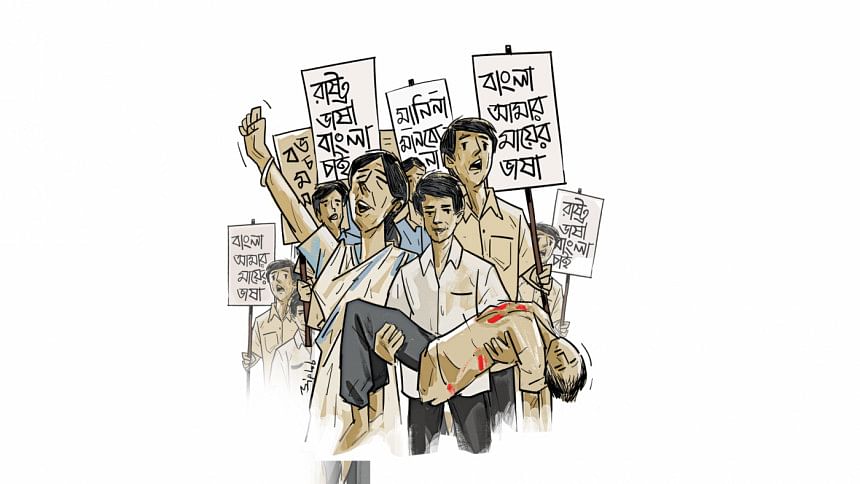Sylhet dailies lead call for Bangla

This year marks the 73rd anniversary of the 1952 Language Movement. Drawing on research based on various published books, this 21-part series tells the story of the historic struggle for our mother tongue.
It was in the newspapers of Sylhet that the first demands for Bangla as the state language were raised.
Due to its regional characteristics, Sylhet always fostered a distinct identity, and so it was inevitable that the powerful wave of the Language Movement would sweep through this northeastern district.
According to the book "Bhasha Andolon Teknaf theke Tentulia" by Ahmed Rafiq, the mouthpiece of the Muslim Literary Society of Sylhet was the newspaper Al-Islah.
In an editorial in the August 1947 issue of the daily, it was stated: "We can never support any language other than Bangla as the state language."
On November 9 and 30 and on December 28 of that year, three separate discussions on the state language were held in Sylhet.
During the November 30 discussion at an Aleya Madrasa, writer Syed Mujtaba Ali presented arguments in favour of Bangla as the state language.
He said, "Imposing Urdu as the state language instead of Bangla would be sheer foolishness." This statement was later published in 1949 in a book titled "Purbo Pakistan er Rashtrabhasha" (The State Language of East Pakistan).
On January 11,1948, when the Minister of Communications Sardar Abdur Rab visited Sylhet, the local Muslim Chhatra Federation submitted a proposal to him, demanding Bangla as the state language.
On February 22, prominent women leaders sent a memorandum to Chief Minister Khwaja Nazimuddin, requesting the same. Among the signatories of the memorandum were Zobeda Khatun Chowdhurani, Sahera Banu, and Syeda Luthfunnisa.
Later, a campaign was launched throughout the district in preparation for March 11 as the main day of the movement.
According to the book "Purba Banglar Bhasha Andolon o Tatkalin Rajniti" by Badruddin Umar, a public meeting, presided over by Mahmud Ali, was held at Gobindacharan Park on March 8.
It was disrupted by radical members of the Muslim League, who severely assaulted student leader Maksud Ahmed. Several others, including the editor of Nawbelal newspaper, Dewan Mohammad Azharf; Abdus Samad, and Dewan Wahidur Reza were also injured.
On March 10, District Magistrate M Islam banned all state language-related gatherings across Sylhet for two months, citing the highly volatile situation. Consequently, no activities were conducted the following day.
On January 27, 1952, students and locals took to the streets, protesting Khawaja Nazimuddin's statement that Urdu would be the state language. A Bhasha Sangram Parishad (Language Struggle Committee) was formed, with Pir Habibur Rahman as its convener and Mahmud Ali, Nurur Rahman, Monir Uddin Ahmad, and Hajera Mahmud, among others, as members.
After it was decided that February 21 would be the main day of the movement that year, a district-wide campaign was launched.
On February 21, a full-scale hartal and shutdown were observed across the city. In the morning, students brought out processions from their respective schools and colleges.
The book "Bhasha Andolon er Ancholik Itihash" by Dr Abu Mohammad Delowar Hossain states that the news of student killings in Dhaka caused an uproar in Sylhet. In protest, several leaders and workers of the Muslim League resigned from their positions, while enraged locals took to the streets.
On February 21, another daylong hartal was observed.
In the morning, a women's meeting, presided over by Zobeda Khatun, was held at Gobindacharan Park. There, Begum Hajera Mahmud, in a fiery speech, strongly protested against the killing of students and demanded Bangla as the state language.

 For all latest news, follow The Daily Star's Google News channel.
For all latest news, follow The Daily Star's Google News channel. 



Comments